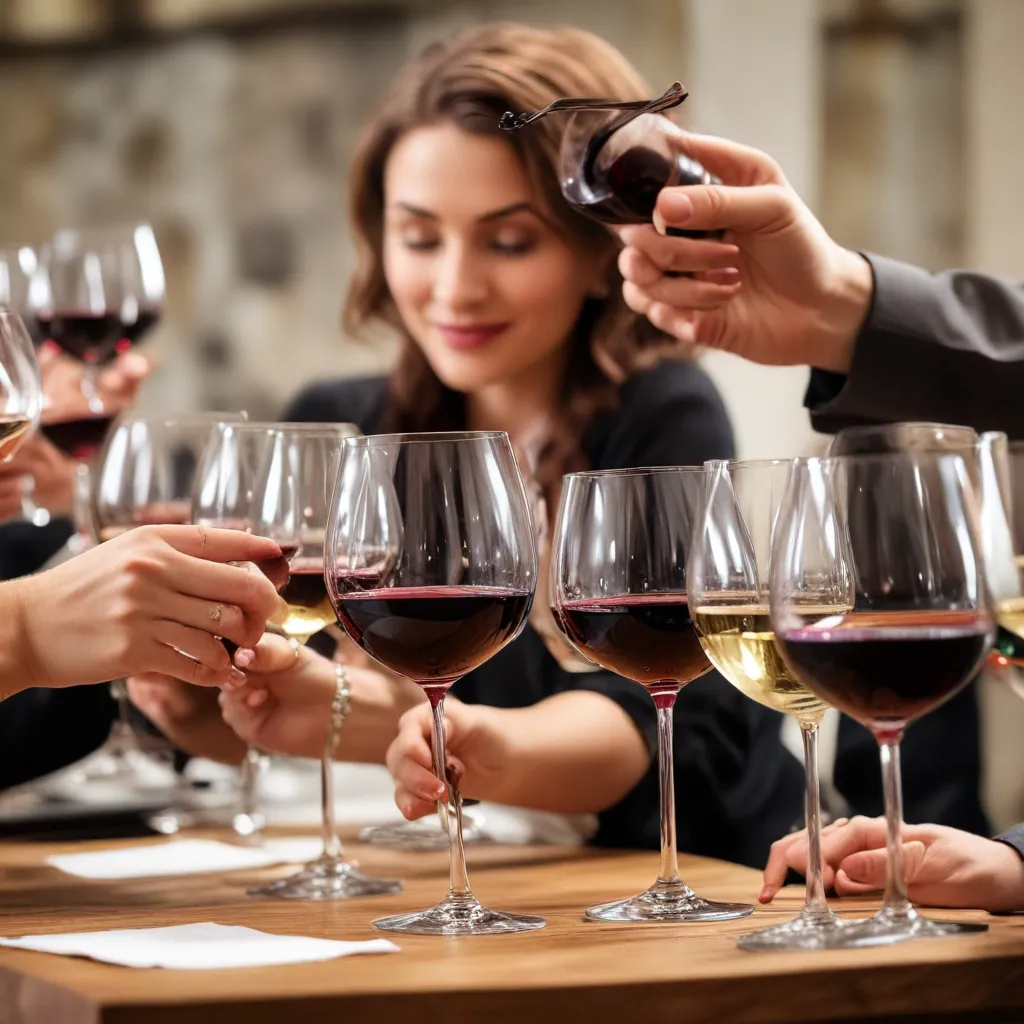
Wine tasting is a captivating sensory experience that goes far beyond a simple sip. It is an art form, a scientific exploration, and a journey of discovery all in one. For wine enthusiasts, mastering the techniques of wine tasting unlocks a treasure trove of nuanced flavors, aromas, and textures – each sip telling a story about the vintner’s craft and the unique characteristics of different varietals.
Fundamentals of Wine Tasting
The Wine Tasting Process
The essence of wine tasting is encapsulated in the five S’s – See, Swirl, Sniff, Sip, and Savor. This systematic approach ensures a thorough and holistic evaluation of the wine, guiding enthusiasts through a sensory journey that unveils the wine’s character and subtleties.
Visual examination begins with assessing the wine’s color and clarity, which offer valuable insights into the wine’s age, grape variety, and potential faults. Beyond aesthetics, the “legs” that form on the glass provide clues about the wine’s alcohol content and viscosity.
Swirling the wine serves a crucial purpose in unlocking its aromatic potential, allowing the wine to interact with air and release its full spectrum of scents. The ability to identify a wide range of aromas, from fruity and floral to spicy and earthy, enhances the overall tasting experience.
Taking a sip might seem straightforward, but there’s an art to it. The proper sipping technique involves allowing the wine to coat the palate, revealing nuances of flavor and mouthfeel. Evaluating the wine’s acidity, tannins, and overall balance is key to understanding its character.
Sensory Evaluation Techniques
Beyond individual components, evaluating a wine involves forming an overall impression. Assessing the balance of the wine – ensuring that acidity, tannins, and fruit flavors harmonize for a well-rounded experience – is a critical skill for wine professionals.
Recording tasting notes is a valuable practice for every wine enthusiast. A personal wine journal becomes a companion on the journey of exploration, capturing observations and preferences for future reference. Organizing entries and building a lexicon of descriptors contribute to ongoing learning and refinement.
Understanding Wine Characteristics
Unlocking the full spectrum of wine appreciation requires a deep understanding of grape varietals and the influence of different regions. Exploring the nuances of terroir – the combination of soil, climate, and other environmental factors that shape a wine’s character – provides valuable insights into the diverse world of wine.
Essential Wine Knowledge
History and Regions of Wine
From the ancient vineyards of the Mediterranean to the cutting-edge wineries of the New World, the history of wine is a tapestry of tradition, innovation, and cultural influence. Delving into the rich narratives of wine’s evolution in different regions – from the iconic appellations of France to the emerging wine cultures of South America and Asia – fosters a deeper appreciation for the artistry of winemaking.
Grape Varietals and Styles
The sheer diversity of grape varietals, each with its own unique personality and flavor profile, is a testament to the boundless creativity of winemakers. Mastering the distinguishing characteristics of grapes like Cabernet Sauvignon, Chardonnay, Pinot Noir, and Riesling, among others, empowers wine enthusiasts to navigate the vast and ever-evolving world of wine styles.
Winemaking Practices
Gaining insight into the technical aspects of winemaking – from fermentation and barrel aging to fining and filtration – provides a holistic understanding of how a wine’s final expression is shaped. Exploring the influence of factors like oak treatment, malolactic fermentation, and yeast selection unveils the countless decisions that winemakers navigate to craft their masterpieces.
Developing Tasting Proficiency
Cultivating Sensory Awareness
Honing one’s senses is a fundamental step in mastering the art of wine tasting. Regularly engaging in structured tasting exercises, whether at home or in a professional setting, helps enthusiasts refine their ability to perceive and distinguish subtle nuances in aroma, flavor, and mouthfeel.
Organizing Tasting Notes
Maintaining a comprehensive wine journal is a powerful tool for wine professionals. By recording detailed observations, enthusiasts can track the evolution of their palate, identify personal preferences, and build a valuable reference for future tastings and food pairings.
Improving Descriptive Skills
Developing a rich vocabulary to articulate the complex sensations encountered during a wine tasting is a hallmark of a seasoned professional. Continually expanding one’s lexicon of descriptors, from fruit and floral notes to earthy and spicy undertones, empowers enthusiasts to communicate their experience with precision and clarity.
Professional Tasting Strategies
Organizing Tasting Events
For wine professionals, hosting or participating in structured tasting events offers unparalleled opportunities for learning and refinement. Blind tastings, where wines are concealed and evaluated solely on their merits, challenge tasters to rely on their senses and intuition, while vertical tastings – comparing different vintages of the same wine – reveal the nuances of aging and vintage variation.
Evaluating Wine Quality
Assessing the quality of a wine goes beyond individual preferences and subjective impressions. Seasoned professionals employ a range of objective criteria, including balance, complexity, intensity, and persistence, to provide comprehensive and insightful evaluations.
Providing Tasting Feedback
Delivering thoughtful and constructive feedback is a crucial skill for wine professionals, whether in the context of a private tasting, a consumer event, or a professional review. Striking a balance between articulating the wine’s unique attributes and offering constructive criticism requires empathy, objectivity, and a deep understanding of the winemaking process.
Mastering the art of wine tasting is a continuous journey of refinement, exploration, and personal growth. As enthusiasts hone their skills, each glass becomes an opportunity to deepen their connection to the rich tapestry of wines that grace glasses around the world. By embracing the fundamentals, expanding their knowledge, and adopting professional tasting strategies, wine enthusiasts can transform their passion into a profound appreciation for the artistry of winemaking.
Discover the world of wine at Wine Garden Inn – where our estate-grown produce, gourmet breakfasts, and curated wine experiences await your exploration. Join us on this delightful journey of culinary and viticultural discovery.
